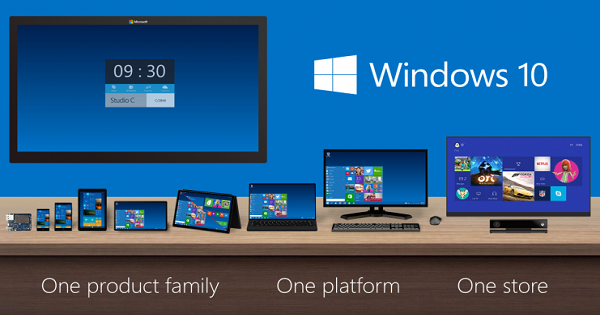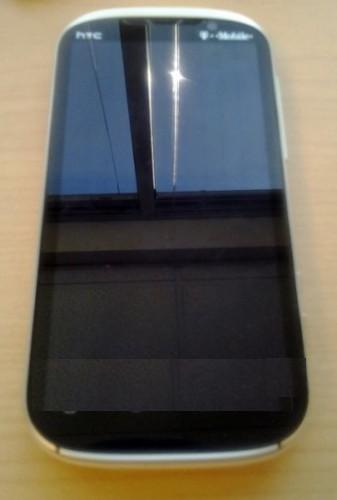Google Inc. $12.5 billion deal to buy cellphone maker
Motorola Mobility Holdings Inc. is aimed at giving the Internet search leader more legal firepower as it battles Apple Inc. and Microsoft Corp. to gain the upper hand in the increasingly important mobile computing market.
The all-cash acquisition announced Monday is the boldest move in Google's 13-year history.
Besides being by far the largest deal that Google has ever proposed, buying Motorola would push the company into phone and computer tablet manufacturing for the first time, at the risk of alienating the other device makers that depend on Google's Android operating system.
The proposed deal also is likely to increase government scrutiny on Google at a time when antitrust regulators in the U.S. and Europe already are parsing its business practices to determine whether it has been abusing its power to stifle competition. The inquiries are focused primarily on the company's Internet search and advertising businesses, but regulators are also looking into whether Google using Android to ensure its s services receive preferential treatment on devices using that free software.
If federal regulators approve the deal, Google
CEO Larry Page's ability to avoid a clash of cultures will be tested. With 19,000 workers, Motorola Mobility's work force isn't that much smaller than Google's payroll of 28,800 employees. Getting Motorola's patent portfolio will "help protect Google from anticompetitive threats from Microsoft, Apple and other companies," Page told analysts during a Monday conference call. "With mobility increasingly taking center stage in the computing revolution, the combination with Motorola is an extremely important step in Google's continuing evolution," said Page, who replaced Schmidt as CEO 4 1/2 months ago.
Google pounced on Motorola less than two months after a group including Apple and Microsoft joined up to pay $4.5 billion for 6,000 patents owned by Nortel, a bankrupt Canadian maker of telecommunications equipment. Leaving no doubt about the mounting antagonism among the companies, Google's top lawyer blasted Apple and Microsoft for their legal maneuvering earlier this month in a blog post titled "When patents attack Android."
"We believe this acquisition was solely driven by the ongoing patent war," Sanford Bernstein analyst Pierre Ferragu wrote in a research note.
Buying the patent protection will be expensive, although Google can easily afford it with $39 billion in cash. The price translates to $40 per share — 63 percent above Motorola's stock price before the deal was announced.
Motorola Mobility's shares soared $13.65 to $38.12 in Monday's afternoon trading while Google shares shed $9.66 to $554.11.
It's a coup for Motorola Mobility CEO Sanjay Jha and the company's largest shareholder, billionaire investor Carl Icahn, who had been pressuring Jha to cash in on the patent portfolio.
Motorola Mobility, which is based in Libertyville, Illinois, has been struggling for years to come up with a product that has the mass market appeal of its Razor cell phone back in 2005. The company had some success with the Droid, one of the first phones to run on Android, but it now ranks a distant eighth in the smartphone market with 4.4 million units shipped in the second quarter, according to the research firm, Canaccord Genuity. By comparison, the market-leading iPhone shipped about 20 million units.
An attempt to counter the iPad hasn't paid off for
Motorola Mobility either. In an effort to drum up more demand, the company recently cut the price on the Wi-Fi-only version of its tablet, the Xoom, from $599 to $499.
The troubles saddled Motorola Mobility with a $56 million loss in its latest quarter, pushing the company's stock price to one of its lowest points since its January spinoff from the old Motorola Inc. In contrast, Google earned $2.5 billion in its more recent quarter ending in June.
Google intends to run Motorola separately from its core Internet search and advertising business.
Google expects to gain the required regulatory approvals to close the deal by early next year. That's an ambitious time table, given how closely some of the company's other big deals have been vetted by antitrust regulators before gaining approval.
Google's largest acquisition, a $3.2 billion purchase of online advertising service DoubleClick, was reviewed for nearly a year before it closed in 2008. Management believes regulators will sign off on the Motorola deal more quickly because Google doesn't currently make cell phones and the patents will help ensure the Android system can compete against Apple's operating system for the iPhone.
The deal has the backing of other major makers of Android phones, including Samsung Electronics Co. of South Korea and HTC Corp. of Taiwan, which both welcomed the acquisition in Monday statements. That support should help Google make its case with regulators. Both Samsung and HTC have their own selfish interests for supporting the acquisition. The
Motorola patents could shield them from licensing demands being made by Apple, Microsoft and others who claim their usage of Android infringes on their intellectual property.
Motorola, which introduced its first cell phone nearly 30 years ago, has more than 17,000 patents with another 7,500 still awaiting approval. That trove presumably will give Google and its Android more patent protection against a list of legal antagonists that include three of the technology industry's most powerful companies — Apple, Microsoft and Oracle Corp.
Apple and Google were once so close that Google's former CEO, Eric Schmidt sat on Apple's board. But the two companies have grown increasingly antagonistic as Android provided hardware makers with a way to counter the popularity of Apple's game-changing iPhone and iPad. The friction prompted Schmidt to resign from Apple's board two years ago.
Microsoft, one of Google's bitterest rivals for years, is desperately trying to make inroads in the mobile device market. Forrester analyst John McCarthy thinks Microsoft now may try to counter Google by pursuing a long-rumored takeover of its partner, cellphone marker Nokia Corp. Investors were betting on that possibility Monday as Nokia's shares climbed 78 cents, or more than 14 percent, to $6.14 in afternoon trading.
Still, Google's expansion into manufacturing could complicate its relationship with some Android partners who might be worried about Motorola getting preferential treatment.
"Google will move from the position of partner to that of competitor to Android handset manufacturers, potentially placing significant strain on the Android ecosystem," Ovum analyst Nick Dillon wrote in a Monday note. He believes some cellphone and tablet makers will shift to other software if they detect the slightest whiff of favoritism.
Google executives stressed that the current process of selecting a different manufacture each year to showcase the latest advances in Android software will continue as before.
Besides cell phones,
Motorola Mobility makes cable set-top boxes, a fact that Page called "a great opportunity."









































